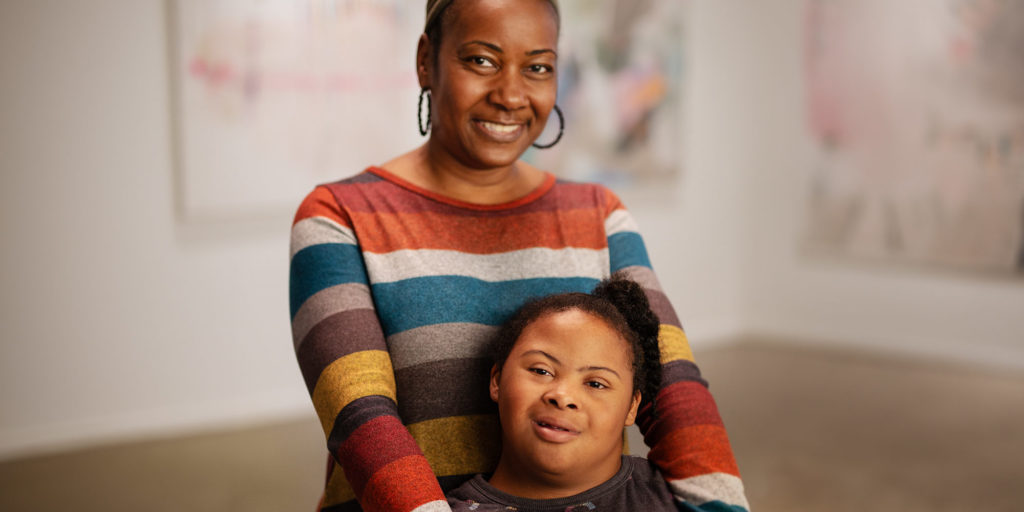Home / Disability / Employment Services
A disability shouldn’t disqualify anyone from contributing to the workforce.
Our Disability Employment program aims to foster growth, opportunity, and independence for individuals with disabilities. Through creating inclusive skill-building and employment opportunities, we empower our clients to reach their goals and find the unique contribution they were born to make! We believe every person deserves to know the joy of dignified, meaningful work and we‘re here to help make it happen.
Building Dignified Inclusion at Work and Beyond
Our Supported Employment program creates a path for disabled adults to be included in the workforce. These services include a range of options focused on building employment skills and meeting an individual’s needs and goals. After an assessment of a client’s skills, abilities, and interests, we suggest an employment path to walk together. Regardless of the path that’s best for each client, our team is here to provide support every step of the way making sure that individuals and employers are comfortable and equipped to succeed!
Supported Employment Options Include:
Many adults with disabilities have the skills to secure a traditional job in the community. In this case, we provide support to apply for a job, help advocate with the prospective employer to secure an interview, and then remain available to assist with onboarding once a job offer is made. It’s a joy to support our client's job search and to see them making their unique contributions!
Sometimes adults with disabilities need personalized employment opportunities in order to thrive in the workplace. Our Customized Employment path creates a personalized relationship between the job candidate and the employer. Together, we explore ways to customize the job responsibilities so they align with our clients' strengths, abilities, and interests. Once an individual is employed, we remain engaged to assist and support them and their employer. The length of our support varies based on the individual’s progress and needs. We love seeing employers willing to partner with us to build a more inclusive workplace where our clients can bring their talents and skills to the table!
Youth with disabilities deserve to have the same work experience as their peers. Through participation with the State Vocational Rehabilitation offices in our areas, we develop paid work opportunities with local employers and provide workplace support called Job Coaching for high school students during the summer months.
How to Get Started
Anyone with a disability who is looking to secure employment in the community should contact Michigan Rehabilitation Services to secure a referral for support from Judson Center. No CMH case is required to do so. Once you have a referral, you will be directed back to Judson Center to begin your intake. Our team is here to answer any questions you may have along the way.
Disability
Service Locations
Click to browse Disability Services by location.

Get Started Today
The first step in receiving skill-building training is to seek a referral from your case manager or supports coordinator through Community Mental Health. We can receive referrals from Oakland County Health Network (OCHN) or Detroit Wayne Integrated Health Network (DWIHN) based on the county of residence. If you live outside of Oakland or Wayne County, support can be accessed by contacting the local community mental health.



